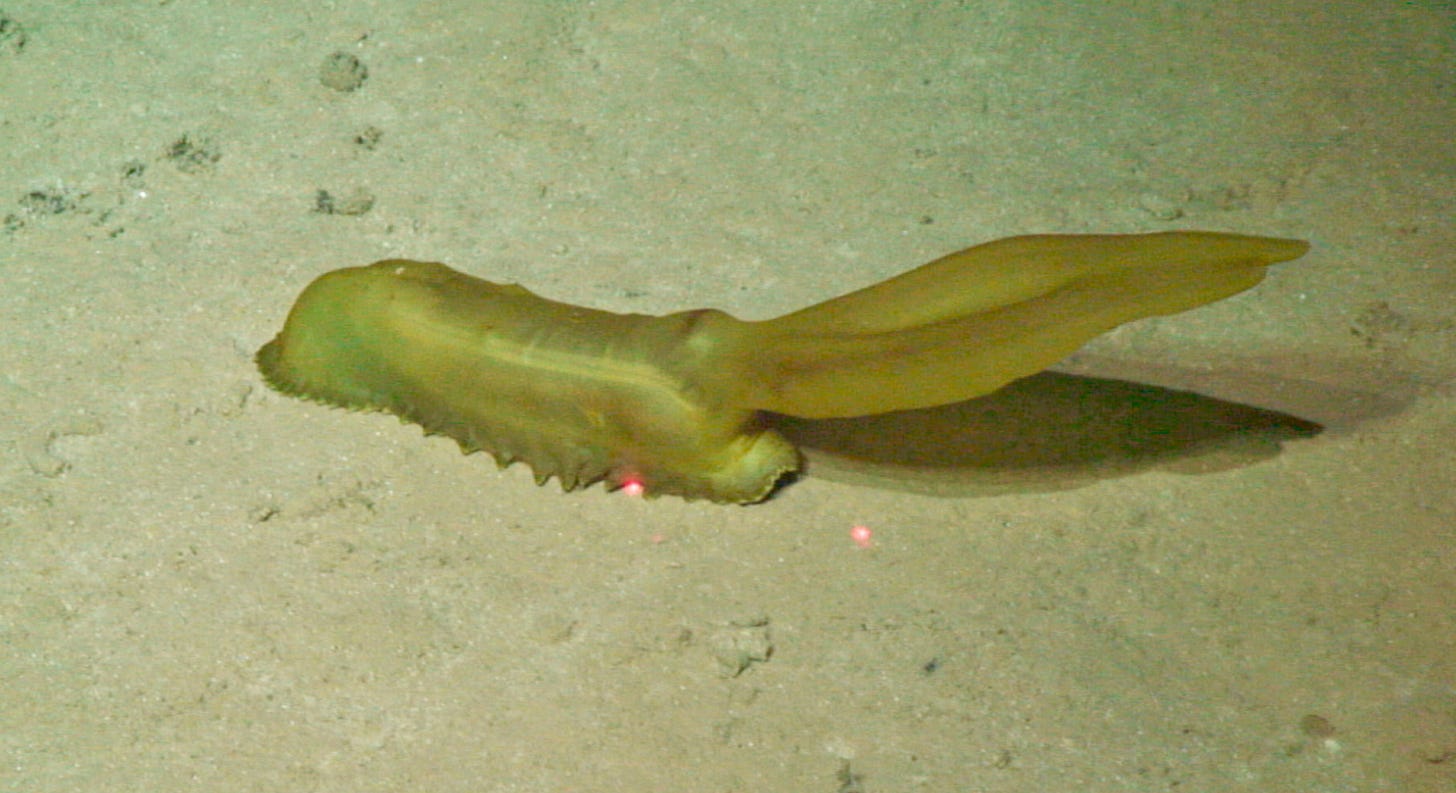Deep Sea Mining
Should we mine mineral resources in the deep sea even though we could damage unique ecosystems and wipe out entire species? The International Seabed Authority has been negotiating about this question.
The deep sea is a unique treasure trove with sensitive ecosystems and immeasurable biodiversity. In addition, there are gigantic deposits of mineral raw materials. International corporations and some governments are pushing to exploit these mineral resources. In Jamaica, the member states of the International Seabed Authority have just negotiated a "Mining Code", the set of rules for possible commercial deep-sea mining. Arlo Hemphill from Greenpeace USA was there as an observer.
"The place of investment interest to beginn deep sea mining is a place called CCZ, Clarion-Clipperton Zone, which is an enormous area that is between southeast Hawaii and the coast of Mexico. Just the exploration licences that have already been issued by the International Sea Bed Authority are the size of Canada. And that’s just the beginning."
Video from Clarion-Clipperton-Zone ©DeepCCZ Expedition, National Oceanic and Atmospheric Administration (NOAA)
At stake are cobalt, copper, manganese and nickel, rare earths, and silver and gold. The minerals, mining companies argue, are needed for electric cars, wind turbines, and solar cells. Arlo Hemphill takes this is a PR spin:
"They want us to believe that this is deep sea mining is necessary for the Green transition. What people don’t mention is that one of the largest markets for cobalt is for military applications. They are needed for balistic missiles and other things like night vision guggles that military use. And most importantly, Hemphill continues, is the carbon impacts. "There are just mass amounts of sediment down there that have built up millions of years – and it’s carbon rich. What is going to happen when you are distructing the world’s largest carbon sink? Are we toying with a climate change time bomb?"
Major automakers such as BMW, VW and Renault, as well as Tesla and Toyota, have already pledged not to use raw materials from the deep sea for the time being. Martin Webeler of the non-governmental organization Environmental Justice Foundation, who has also been following the seabed authority negotiations in Jamaica, draws the following conclusion:
"That means we have this potential for innovation on one side. But on one side, the economic system as a whole also needs to change. This throwaway mentality, which Western societies in particular also have, is a major problem. Now to destroy yet another completely new ecosystem in order to push this standard of living further and further: That simply can't happen."
Germany is one of 21 countries on the 36-nation Seabed Authority Council that favors a "provisional pause" because of the risks. France is even in favor of an absolute halt. The United States has not ratified the International Convention on the Law of the Sea, but has signed it. Thus, the U.S. has observer status. Moreover, the country's position of economic and strategic power gives it an enormous indirect influence on the negotiations.
"The ports of the West Coast of the United States are strategic for launching ships that are going out to the central Pacific," points out Arlo Hemphill of Greenpeace. So San Diego has already frequently been a point for deep sea mining vessels. You have companies like GSR that is based in Belgium who uses the port of San Diego to launch their activities. "The West Coast of North America, Canada, US and Mexico is the most strategic place not only to launch ship. But later when they will process the minerals it will be in one of these three countries."
Arlo Hemphill hopes it will never get to that point. He points to 765 international scientists who are calling for a moratorium. In other words, a set time-out until the consequences of deep-sea mining have been sufficiently researched. However, the member states of the Seabed Authority were only able to agree that the regulations for deep-sea mining would not be adopted until 2025.
Martin Webeler sees this result as quite positive. These negotiations have shown that the international community is not being driven by the mining companies. "Instead, it has been said that we first need time to develop this set of rules. First of all, we need to see what the negative consequences are before we can even make a decision."
However, the jurisdiction of the International Seabed Authority to protect the deep sea only covers international waters outside the 200-nautical-mile zone. It does not affect what happens in national waters. Norway has already announced that it intends to engage in deep-sea mining in its own waters. The situation is different in the USA, where the state of Hawaii has just introduced a bill to ban this in American waters. The battle for the deep sea habitat continues.
This text was original published in German on my website and as a radio report.

